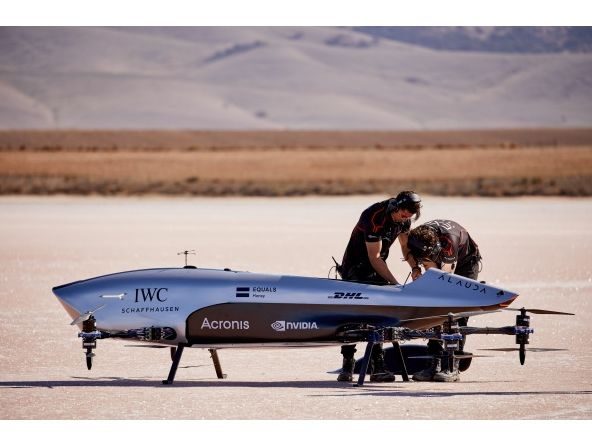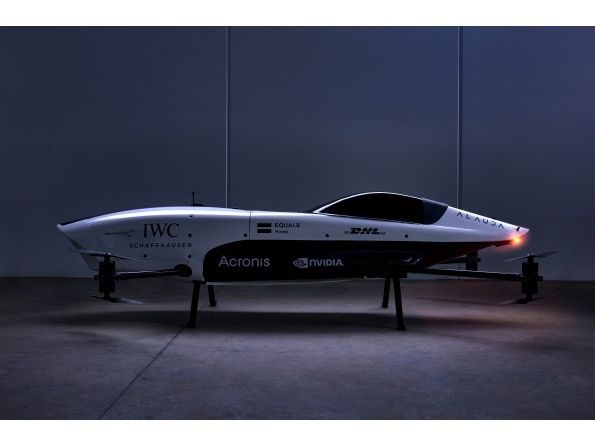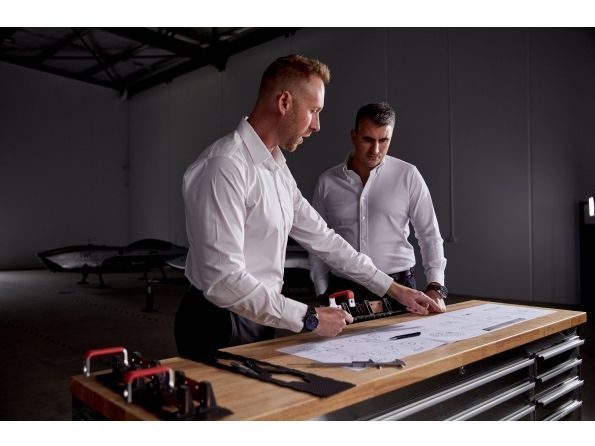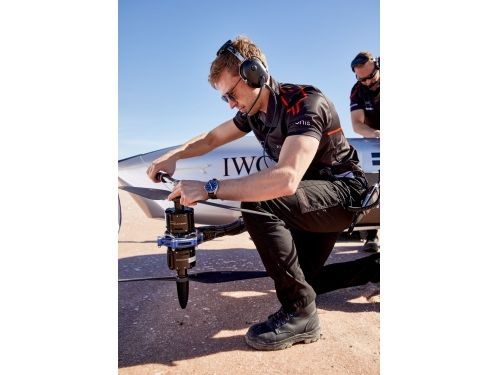Categories more
- Adventures (17)
- Arts / Collectables (15)
- Automotive (37)
- Aviation (11)
- Bath, Body, & Health (77)
- Children (6)
- Cigars / Spirits (32)
- Cuisine (16)
- Design/Architecture (22)
- Electronics (13)
- Entertainment (4)
- Event Planning (5)
- Fashion (46)
- Finance (9)
- Gifts / Misc (6)
- Home Decor (45)
- Jewelry (41)
- Pets (3)
- Philanthropy (1)
- Real Estate (16)
- Services (23)
- Sports / Golf (14)
- Vacation / Travel (60)
- Watches / Pens (15)
- Wines / Vines (24)
- Yachting / Boating (17)
Published
06/18/2021 by AirspeederIWC Schaffhausen joins forces with Airspeeder, the world’s first electric flying car racing series, in a new engineering and timekeeping partnership. Combining the passion both companies share for technological progress, human endeavour and sustainability, they will work together in pioneering this new form of motorsport to fast track a new era of clean-air mobility.
The Airspeeder racing series is the brainchild of founder Matt Pearson, who also runs Alauda, the world’s first performance electric flying car manufacturer. Taking inspiration from the role sport has traditionally played in advancing the cause of technology, Pearson’s visionary idea is to create a new kind of motorsport to accelerate the advanced air mobility revolution and transform passenger, logistical and even medical transportation.
The planned global race series will eventually see a full grid of eVTOL (electric Vertical Take-Off and Landing) craft, manufactured by Alauda, managed by individual teams and operated by elite pilots, compete at heights of up to 40m off the ground and at top speeds of 200km/h. The air races will take place on electronically-created tracks and be streamed globally, minimising the environmental impact of more complex logistics and infrastructure.
“It’s fantastic to play a part in bringing Matt’s bold vision to life. The Airspeeder team are true pioneers of aviation and they are bringing together two things that are really close to IWC’s heart. From making some of the planet’s best pilots’ watches for the last eighty years to the cut and thrust of modern automotive design and racing, we have always equipped and inspired those who dare to dream. We are proud to collaborate on an endeavour that will make such a progressive impact on society,”
-Christoph Grainger-Herr, IWC CEO.
From its technical base in South Australia, the Airspeeder project has brought together some of the brightest minds in aviation, motor racing and performance automotive engineering from across the world. Charged with envisioning a better future, the diverse team of engineers, specialists and pilots are encouraged to think innovatively to push the boundaries of technical excellence, a philosophy which IWC also shares. The new partnership reflects this common purpose and will establish a knowledge exchange to prompt technological progress within the engineering departments of both organisations.
“Time and again, IWC has enabled dreams and nurtured innovation. Like us, they see beyond the known horizon towards something different, bolder and more inventive. This commitment to progress is something we also value, and we are delighted that the entire team at Schaffhausen believes in our vision. Whether the result is a beautifully designed watch or a revolutionary flying car, we all rely on human and technical endeavour to make truly impactful change through giant technical leaps. I can’t wait to see what we can achieve together.”
-Matthew Pearson, Founder, Airspeeder and Alauda
Airspeeder developed its first small-scale prototype performance eVTOL in 2017 and has continued to finesse the design ever since through computer modelling and simulation, as well as extensive testing.
The newest vehicle, the Mk3, is the world’s first fully functional electric flying racing car. With an overall aesthetic reminiscent of classic 1950s sportscars combined with racing drones, the speeders feature an octocopter layout, airfoil-profiled rotor arms, cutting- edge carbon-fibre composites and the latest EV battery technology. New advances in safety are delivered through a suite of technologies and engineering elements never before seen on an eVTOL craft. These innovations include LiDAR and Radar collision avoidance systems that create a ‘virtual force field’ around the craft to ensure close but ultimately safe racing. Designed for maximum performance and aerial agility, they move through the air with precision and pace. An entire grid of these remotely piloted Mk3s is currently being built by Airspeeder, ahead of this year’s competitive pilotless events. The Mk4 is expected to launch in 2022, before the inaugural crewed season gets underway.


















